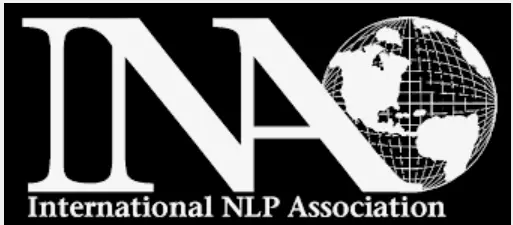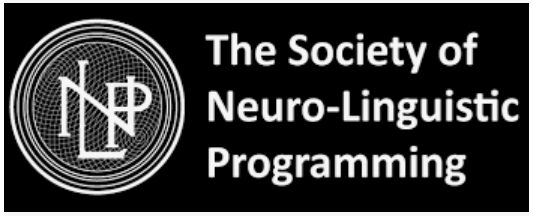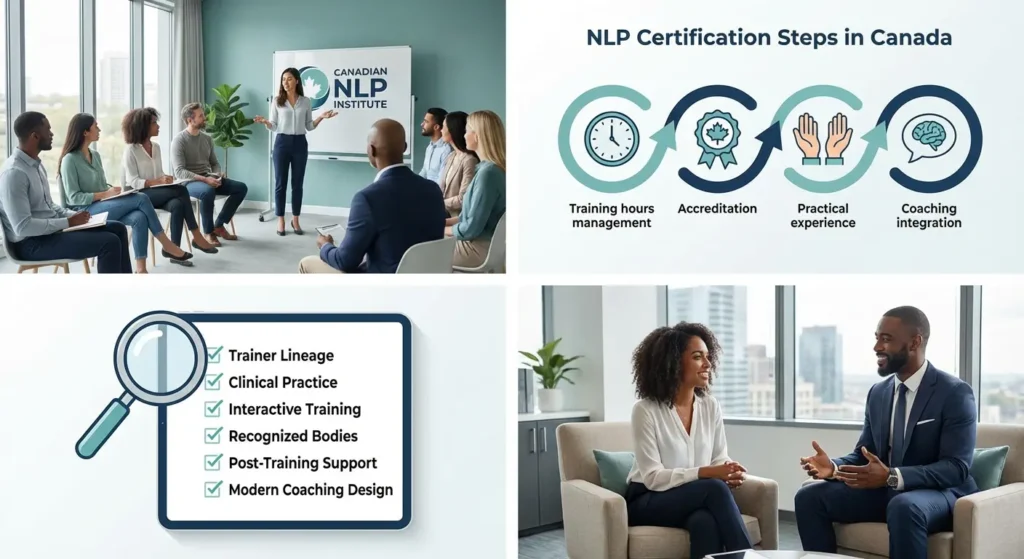The demand for NLP training in Canada has exploded over the past decade. Walk into any professional development conversation, and you’ll hear about someone who just certified as an NLP practitioner or transformed their coaching practice with neurolinguistic programming techniques. This growth creates incredible opportunities but also a minefield of confusion for anyone trying to choose the right NLP training program.
Key Takeaway:
- NLP demand in Canada has surged, but as an unregulated field, avoid certificate mills—opt for accredited programs (INA, SNLP, ICF) with 80+ hours of live, interactive training to gain real transformation, not just a paper credential for coaching, leadership, or business edges.[1]
- Choose wisely: Prioritize trainers with proven lineage, clinical experience, and post-support (mentorship, practice groups); in-person for hands-on calibration, online for flexible synchronous sessions—red flags include weekend “quickies” or pre-recorded modules lacking feedback.[1]
- Levels build mastery: Start with Practitioner (80-120 hours on core techniques like rapport, reframing, anchoring), advance to Master/Trainer; outcomes include client breakthroughs, career launches in HR/sales/therapy, and $2,500-$5,500 investments that pay off in confidence and results.[2]
- Pitfalls to dodge: Superficial training without real-client practice or interaction; always vet for graduate testimonials and hands-on %—quality programs change YOU first, empowering authentic application over theory.[2]
Bottom Line: Unlock NLP’s power in Canada by choosing accredited, interactive training that builds true skills—audit one program today, invest in your transformation, and step into a career of profound client impact and personal mastery.
- Source: Unleash Your Power – What Should I Look For In An Accredited NLP Training Program (introduction, why choose NLP & choosing guide sections)
- Source: Benefits/outcomes, program types, red flags, FAQs & calls to action
Here’s the challenge: NLP is an unregulated profession. Anyone can claim to offer “accredited” or “certified” training, and the credentials you receive might range from world-class to worthless. If you’re investing your time, money, and career aspirations into NLP training, you need to know what actually matters beyond the certificate on your wall.
This guide cuts through the marketing noise to give you a clear framework for evaluating NLP training quality, understanding what certification standards mean in Canada, and choosing a program that delivers genuine transformation, not just a piece of paper.
Understanding NLP Certification in Canada

Before you compare training programs, you need to understand what NLP certification actually represents in the Canadian professional landscape.
Why NLP Is an Unregulated Profession
Unlike psychology, medicine, or even massage therapy, NLP has no governing regulatory body in Canada. There’s no provincial licensing board, no mandatory continuing education requirements, and no centralized standards enforcement. The universally agreed certification structure exists globally, but compliance is entirely voluntary.
This creates both freedom and responsibility. Freedom means diverse training approaches, innovative techniques, and accessibility for aspiring practitioners. Responsibility means you must do your homework to separate quality training from certificate mills churning out undertrained practitioners.
What “Accreditation” Actually Means in NLP
When you see “accredited NLP training,” what does that actually signify? In most cases, it means the training organization has aligned with one of several recognized NLP training organizations that maintain their own standards. Unlike professional regulation, these are membership organizations with varying criteria.
The quality of your training depends far less on which certificate you receive and far more on the caliber of instruction, practical experience, and depth of skill development you gain. A certificate from a prestigious organization means nothing if the training was superficial or the instructor lacked real-world experience applying NLP techniques.
What Are The Key Quality Indicators for NLP Training Programs?
Beyond the certificate, five critical factors determine whether your NLP training will genuinely equip you for professional practice or leave you with theoretical knowledge you can’t apply.

First, examine your trainer’s credentials and lineage. Your instructor should hold the appropriate certification level to teach a Master Practitioner to train Practitioners, a Trainer to certify Master Practitioners. More importantly, can they demonstrate a clear training lineage back to reputable sources? Have they worked with clients using NLP techniques for years, or did they just complete their own certification last month?
Second, prioritize programs with clinical or practical experience requirements. The clinical training experience component separates competent practitioners from those who have only practiced on fellow students. Would you hire a plumber who’d never worked on a real bathroom? The same logic applies to NLP training.
Third, training format matters tremendously. Choosing qualified NLP trainers who deliver synchronous, interactive training creates fundamentally different results than watching pre-recorded videos alone in your basement. Live instruction allows for real-time feedback, calibration practice, and the subtle skill development that separates effective practitioners from theoretical knowledge collectors.
Fourth, understand recognized certification bodies. Organizations like the International NLP Association, Society of NLP, and ITCANLP maintain training standards, while ICF-accredited NLP training can provide coaching core competency hours if you’re pursuing professional coaching credentials.
Fifth, investigate post-training support. Quality programs offer ongoing mentorship, practice groups, and opportunities to deepen your skills beyond the initial certification. Training from an organization like Unleash Your Power means joining a community of practitioners, not just receiving a certificate and being sent on your way.
One practitioner who experienced this firsthand completed James’s NLP Practitioner course after previous training left her confused about integration. The clarity she gained on application, combined with practical tools and unexpected business insights, transformed her confusion into actionable expertise that elevated her professional practice.
Recognized NLP Certification Bodies in Canada
Understanding the certification landscape helps you evaluate what different credentials actually represent.
International NLP Association (INA)

The INA maintains minimum training hour requirements of 80 hours of instruction with at least 10 hours delivered live. Their standards include skills demonstrations for certification, ensuring students can actually perform techniques rather than just describe them theoretically.
Society of NLP (SNLP)

Founded by NLP co-creator Richard Bandler, SNLP represents direct lineage to NLP’s origins. Trainers certified through SNLP have typically undergone extensive training themselves and maintain connections to the foundational NLP community.
ICF Accreditation for Coaching Integration

If you’re pursuing life coaching certification alongside NLP training, ICF-accredited programs provide core competency hours that count toward coaching credentials. This integration makes sense for many Canadian practitioners building coaching practices where NLP serves as a powerful toolkit within a broader coaching framework.
The landscape of certification options in Canada continues evolving, but these organizations represent the most established standards for NLP training quality.
How Do You Evaluate NLP Training Quality in Canada?
When you’re ready to compare specific programs, use this practical evaluation framework to assess quality beyond marketing claims.

Ask trainers specific questions: How many years have you personally worked with clients using NLP? What’s your training lineage? Can I speak with recent graduates about their experience? What percentage of class time involves hands-on practice versus lecture? What clinical or real-world practice opportunities are included?
Watch for red flags: Programs promising “master your life in a weekend,” trainers who can’t clearly articulate their own certification path, or courses where the only practice involves other students paying for the same certificate. Be particularly cautious of entirely pre-recorded online courses with no live interaction. A professional NLP application requires calibration skills developed through real-time feedback.
Assess investment versus value: Selecting experienced trainers with at least a decade of experience typically costs more but delivers exponentially greater value. A $500 certificate from an inexperienced trainer leaves you undertrained and potentially damages your professional credibility. A $3,000-$5,000 investment in comprehensive training from seasoned practitioners like those at advanced NLP training in Canada programs creates the foundation for a legitimate practice.
Evaluate training format carefully: Can you attend live sessions with real-time interaction? Does the program include supervised practice with actual clients, not just fellow students? Is there a community of practitioners you can connect with for ongoing development? Quality training transforms you first; if the program doesn’t create shifts in your own thinking and behavior, you won’t be equipped to facilitate transformation for others.
Consider the Canadian context: Programs based in or familiar with the Canadian professional landscape understand the unique opportunities and challenges you’ll face building a practice here. They can guide you on local market positioning, integration with existing professional credentials, and navigating the specific needs of Canadian clients.
Career Outcomes for NLP Practitioners in Canada

Understanding realistic career paths helps you choose training aligned with your professional goals.
Professional Applications Beyond Coaching
NLP techniques integrate powerfully across diverse professional contexts. Many Canadian practitioners apply NLP in corporate training and leadership development, sales and negotiation consulting, human resources and talent development, education and learning optimization, or health and wellness coaching. The professional NLP applications extend far beyond traditional coaching. NLP becomes a meta-skill, enhancing whatever field you already work in.
Building a Practice in Canadian Markets
Successfully launching your coaching practice with NLP requires more than technical skills. You need business acumen, marketing knowledge, and the ability to communicate value to clients who may not understand what NLP is. Quality training programs address these practical realities, not just the techniques themselves.
Canadian markets offer strong opportunities for skilled NLP practitioners, particularly in major urban centers like Toronto, Vancouver, Calgary, and Montreal. The transformative benefits of NLP resonate with professionals seeking practical tools for career advancement, entrepreneurs building high-performance mindsets, and individuals navigating major life transitions.
The key differentiator in a crowded marketplace? Genuine competence developed through quality training that equipped you to create real results for clients, not just describe NLP concepts theoretically.
Frequently Asked Questions About NLP Training in Canada
Is NLP certification recognized in Canada?
NLP certifications are recognized by employers and clients who understand the field, but there’s no official regulation. Your credibility comes from the quality of your training and the results you deliver, not the certificate itself.
How long does it take to become a certified NLP practitioner?
Legitimate practitioner training typically requires 80-120 hours of instruction over several weeks or months. Weekend certifications don’t provide sufficient depth for professional practice.
Can I practice NLP professionally without certification?
Legally, yes, NLP is unregulated. Practically, quality certification provides essential skills, credibility, and professional connections. Attempting to practice without proper training risks harming clients and your reputation.
What’s the difference between online and in-person NLP training?
Live, synchronous training (whether in-person or virtual) allows real-time feedback and calibration practice essential for skill development. Pre-recorded courses lack the interactive component needed for professional competence.
How much should I expect to invest in quality NLP training?
Comprehensive practitioner training from experienced instructors typically ranges from $2,500-$5,500 in Canada. Significantly lower prices often indicate shorter programs or less experienced trainers.
Transform Your Professional Future with Quality NLP Training
Choosing NLP training isn’t about collecting the most impressive certificate; it’s about investing in genuine transformation that equips you to create results for others. The difference between quality training and a certificate mill determines whether you launch a thriving practice or struggle to apply theoretical knowledge that never quite translates to real-world impact.
You now have the framework to evaluate training programs based on what actually matters: trainer experience and lineage, practical and clinical components, live interactive instruction, recognized certification standards, and post-training support. These quality indicators separate programs that transform practitioners from those that simply issue certificates.
Your journey toward NLP practitioner certification starts with choosing training that changes you first. When you master the techniques through quality instruction, supervised practice, and ongoing development, you gain the competence and confidence to facilitate genuine transformation for your clients.
The Canadian market rewards skilled practitioners who deliver results. Invest in training that develops real capability, not just credential collection. Your future clients deserve a practitioner who truly knows how to unleash their power and that starts with your own transformation through quality NLP training.
What aspect of NLP training resonates most with your professional goals?





